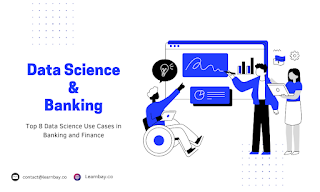Top Data Analyst Skills That Will Get You Promoted
Introduction
Data Analytics and data science have become hot topics in today’s tech era and many people are pursuing them as their next career moves. This topic has been written about and discussed extensively on various platforms. What more could then be said than has already been said?
Here are the top data analytics skills you should improve on in order to get a promotion to senior or managerial positions while also getting increments.
Data Visualization
The time it takes to convey the information to your audience will usually take at least ten times as long as it takes you, the analyst, to analyze the data. As a result, graphics and other visual representations are crucial since they help people understand concepts even if they need to be more skilled in data analysis. You can make it easier for the decision-makers in your organization to quickly understand complex concepts by creating visualizations.
So how can you develop these skills? Online classes and a variety of visualization-specific tools are also readily available as training options. But because the world is changing so quickly and I want to give advice that endures, I suggest you take the best data analytics course in Bangalore to master these tools and become a qualified data analyst.
Data Cleaning
The assertion made by data scientists that "80% of constructing a machine-learning model is preparing and cleaning the data" is well recognized. It also applies to data analysts, though. Whatever the actual ratio may be, the fact remains that cleaning data takes up a significant amount of time in general.
Cleaning data is crucial because dirty data can establish false patterns and draw incorrect conclusions. I was entrusted early in my career with increasing the proportion of support calls that were successfully addressed the first time. One of my management members insisted that the numbers "didn't make sense" as I explained the findings to them. Further investigation led me to learn that the calls data contained a column named "status" that occasionally had an "X." The system would appear to mark a test record with an "X," which should be ignored.
SQL
As I previously stated, I am cautious about suggesting a particular tool or technology due to how quickly the landscape changes. Learning SQL will always be the most straightforward technique to modify and study datasets for your analysis because SQL is the language of databases. Python and R are most likely here to stay, while SQL is on a whole other level.
Ask if it's feasible to access the database directly using SQL if your employer allows you to download extracts in Excel sheets. Your productivity will rise along with the caliber of your work as soon as you feel at ease using database structures and SQL to express data how you desire.
Critical Thinking
One of the most challenging concepts to acquire is critical thinking, for which there are few courses or a one-size-fits-all method. A purposeful effort to resist our brains' automatic thought patterns is known as critical thinking.
Thinking critically does not come naturally to everyone or becomes automatic once acquired. Instead, critical thinking is something you intentionally engage in whenever you need to make a significant analysis or choice. It is an intentional endeavor to reject, probe, and validate hypotheses.
Asking questions is the resource I want to emphasize, even though many others can assist you in developing your critical thinking abilities. You will practice critical thinking if you develop the habit of writing lots of questions.
Assume that you were requested to investigate whether customer churn has decreased recently. Consider pausing to reflect on issues like these:
The churn calculation method Why is that? Do other options exist?
What exactly is churn, according to the customer?
Is there ever a customer option?
What elements might be crucial? Those, can I measure?
What is the aim of this assignment? Prove, refute, show, or back up?
What might I be missing? Do any known assumptions exist that I cannot verify or prove?
Take note of the way this line of inquiry builds up. When you respond to a question, others can ask you more. That is totally OK. That is the fundamental idea!
Communication
On the other hand, communication is a soft skill. Even if you are the most innovative and talented data analyst the world has ever seen, it will only matter if you can interact with others. Unfortunately, I also mean non-technical individuals when I refer to others.
You walk a tightrope between two worlds as an analyst. You are a translator for decision-makers focused on business in the other world. You must discuss technical issues with your coworkers and other data professionals in one world and give high-level, understandable explanations in a way that is helpful rather than perplexing.
Engaging in a community is one approach to start using this soft skill. The number of online forums, groups, and communities in which data analysts can participate is vast. Slack and Discord channels are among my favorites for social interaction, but they are known to fizzle out rapidly.
Conclusion
It is still crucial to stay current with fashion and develop your marketable skills. For instance, VBA, macros, DAX, and ASP were excellent abilities to offer you an edge for promotion 10 years ago. These days, it's unlikely that those talents will be necessary. In order to prevent you from becoming bogged down in the weeds, I've provided you with some helpful advice regarding abilities that have stayed the same in the last 10 years. If you’re wondering how to enhance your skills to get that promotion you want, take up the data science course in Bangalore. This training course will equip you with the demanding skills you need to excel at to get a 97% hike in top MNCs.




This comment has been removed by the author.
ReplyDelete